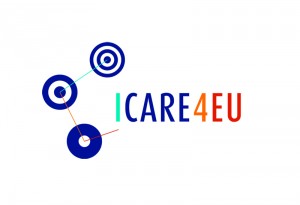 The ICARE4EU project wants to improve the care of people suffering from multiple chronic conditions. It will describe, analyse, and identify innovative integrated care models for people with multimorbidity in 31 European countries, and aims to contribute to more effective implementation of such models. During the project (from 2013 to mid 2016), members of the ICARE4EU consortium will keep readers of The BMJ informed about project developments.
The ICARE4EU project wants to improve the care of people suffering from multiple chronic conditions. It will describe, analyse, and identify innovative integrated care models for people with multimorbidity in 31 European countries, and aims to contribute to more effective implementation of such models. During the project (from 2013 to mid 2016), members of the ICARE4EU consortium will keep readers of The BMJ informed about project developments.
Since our last post, written by my NIVEL colleague Daphne Jansen, the ICARE4EU project has picked up steam and is entering a crucial phase. Earlier this year we finalised our questionnaires, tested them, translated them into 11 languages, and validated them. The questionnaires focus on a country’s policy or strategies regarding integrated chronic illness care—multimorbidity management in particular—and several relevant characteristics of integrated care programmes, such as their patient centeredness, use of e-health technology, management practices and professional competencies, and financing systems. Each project partner has specific expertise on one of these areas. Our team at the Berlin University of Technology, for example, will focus on financing.
Specifically, we are looking for programmes that:
• are aimed at adults with multimorbidity
• include two or more medically diagnosed chronic or longlasting diseases, at least one somatic
• include two or more services, at least one medical service
• have a formalised cooperation (any form)
• are currently running, finished no longer than 24 months ago, or start within the next 12 months
Furthermore, we have appointed national contact points in 31 European countries. These contact points play a pivotal role in our strategy. They will help identify eligible care programmes and the persons managing or involved in these programmes. The contact points are all national experts in the field of chronic illness care, long term care, and multidisciplinary integrated care.
This means that we have now entered the data collection phase of the project. The country experts together with the managers of the programmes will fill out our questionnaires online. If necessary, we follow up to make sure that the respondent has understood the questionnaire and we get the information right. This is an important stage of the project. For many countries we have no clue how many of these care programmes or practices exist. Early impressions seem to suggest that no such programmes exist in Austria, Hungary, Ireland, Poland, and Romania. If you have heard of eligible programmes in these countries, do let us know. In the next blog, we will probably be able to give a ballpark estimation on the scale of such programmes in Europe.
Next up is determining the indicators to identify good practices. We plan to use information from our questionnaires, expert opinions, and other national data. This was one of our main discussion topics during our last meeting in Ancona in late March, which was hosted by our partner INRCA. Any thoughts you may have on relevant indicators that define good practice are greatly appreciated. Please also see our recent presentation at the International Foundation for Integrated Care (IFIC) conference, which took place in early April. Furthermore, this summer we will publish some country fact sheets, so you may want to sign up for our newsletter.
It is an exciting time to be working on integrated care. Almost all countries are experimenting with care integration, and often combine this with payment reforms and e-solutions. Clearly, these initiatives vary considerably (e.g. who leads, scope of care, payment) so are therefore hard to compare, and their impact on patients, care quality, and cost is often unclear. Large international organisations have recognised this. The European Commission already started its European Innovation Partnership on Active and Healthy Ageing in 2012, in which care integration and multimorbidity are explicitly addressed, and also funds research (including this project) through the Health Programme and Horizon 2020. In addition, the WHO recently launched a roadmap on a framework for action towards coordinated/integrated health services delivery.
For the latter, we were invited to a consultation meeting in Brussels. Many issues were explored, including how to: scale up successful initiatives, reform fragmented provider networks, bridge the gap between social and health care, use e-health effectively, manage change, have effective leadership and govern at the right level. Moreover, the stakeholders explicitly acknowledged that existing programmes do not sufficiently address multimorbidity—a situation that will only become more urgent in the future. We therefore hope that our project can play an active role in the solutions to these issues and, most importantly, help improve care for people suffering from multiple chronic conditions.
Acknowledgements:
This blog arises from the project Innovating care for people with multiple chronic conditions in Europe (ICARE4EU), which has received funding from the European Union, in the framework of the Health Programme.
Involved partners
• NIVEL (Netherlands institute for health services research), project coordinator
• TUB (Technische Universität Berlin)
• UEF (University of Eastern Finland)
• INRCA (Italian National Institute of Health and Science on Aging)
• University of Warwick
• AGE Platform Europe
• Eurocarers, European association working for carers
Supportive institution
European Observatory on Health Systems and Policies (OBS)
Competing interests: I declare that I have read and understood the BMJ Group policy on declaration of interests and I have no relevant interests to declare.
Ewout van Ginneken, PhD, is a is a Senior Researcher, Department of Health Care Management at Berlin University of Technology and the Berlin hub of the European Observatory on Health Systems and Policies, Germany.
